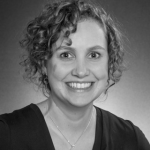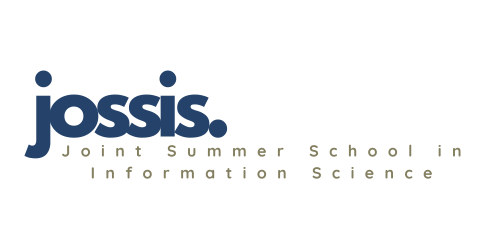This course was held in 2020.
Info
Dates: 24th August – 4th September 2020
- Lecturer: Caroline Dalmus
- Course responsibility: Bernard Bekavac and Armando Schär, FHGR
- Course type: Compulsory Optional Subject (Summer School)
- Related degree levels and programs: BA/MA
- BA/MA in Information Science
- BA/MA in Digital Business Management
- Workload: 120 hours
- Credits: 4 ECTS
- Course abbreviation: DRDA
Caroline Dalmus
 Caroline is research assistant at the University of Applied Sciences of the Grisons. She studied communication and media research and received her PhD in the field of political communication at the University of Fribourg, Switzerland. Here, she also worked for five years as teaching and research assistant. As course instructor she was involved in teaching research methods and digital journalism as well as research seminars on varying topics
Caroline is research assistant at the University of Applied Sciences of the Grisons. She studied communication and media research and received her PhD in the field of political communication at the University of Fribourg, Switzerland. Here, she also worked for five years as teaching and research assistant. As course instructor she was involved in teaching research methods and digital journalism as well as research seminars on varying topics
Synopsis
Research is influenced by new technologies just like most aspects of our everyday life are. Technological innovations not only alter and extend what we can analyze but also how we can analyze it. In this two-week course students will have the great opportunity to learn about research in the digital age, old and new phenomena that can be investigated and digital as well as digitized research methods that may be used for this purpose. Further, the students will undertake a small research project and thereby easily learn how to properly collect, process and analyze data. The goal of this workshop is to broaden the students’ knowledge of research methods, raise their awareness for the chances and challenges new technologies pose to research and improve their methodological and statistical skills in a comprehensible and hands-on manner.
Course goal / Guiding idea
Upon successful completion of the course students will be able to:
Knowledge
The course broaden the students’ knowledge on digitized and digital research methods and raises their awareness for the chances and challenges new technologies pose to research.
Skills
The course further raises the students’ ability to select and use research methods properly and improve their statistical skills using statistical software in a hands-on manner.
Competencies
The course qualifies students to conduct own research and makes them familiar with all phases of the research process – from formulating a research question, to choosing a proper research method, to data collection and analysis.
Course content
- How technological innovations alter and extend the phenomena researchers can analyze and how they can analyze them.
- What differentiates digitized from digital research methods
- Which research methods are appropriate for which research questions
- Realization of a small research project with the focus on data collection and data analysis
Learning outcomes
- Broad understanding of the research process as well as digital and digitized research methods
- Independent realization of a research project
- Reflective handling and use of learned methods and statistical software
Execution
Contact lessons (70h):
- Theory teaching (everybody)
- Development of a small research project (groups)
- Presentation of the research project to the whole group
- Data collection (groups)
- Data analysis (everybody)
Free self-study (20-50h)
Teaching & Learning methods
- Interactive contact event, literature study and reflection; content research; project work, presentation
Proof of performance
- 70% Research report, with a focus on data analysis and reporting of results
- 30% Presentation
Course readings
- TBA
Course schedule and location
Old campus
Room 2.3
Course schedule to be updated.
